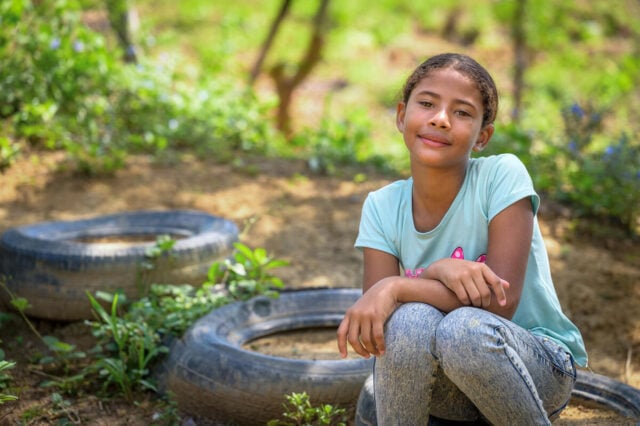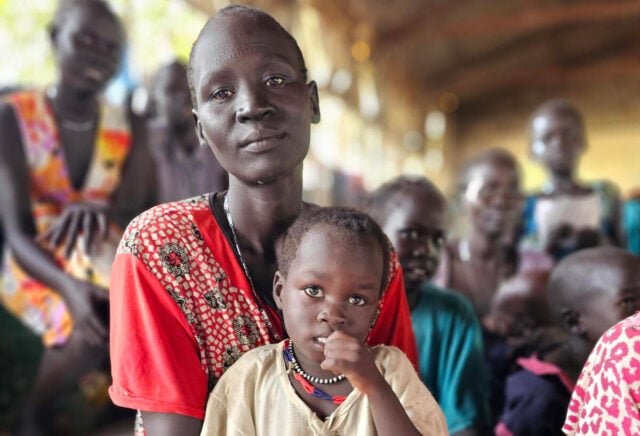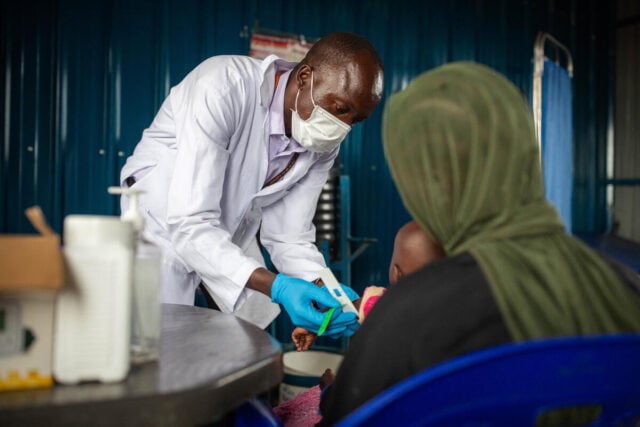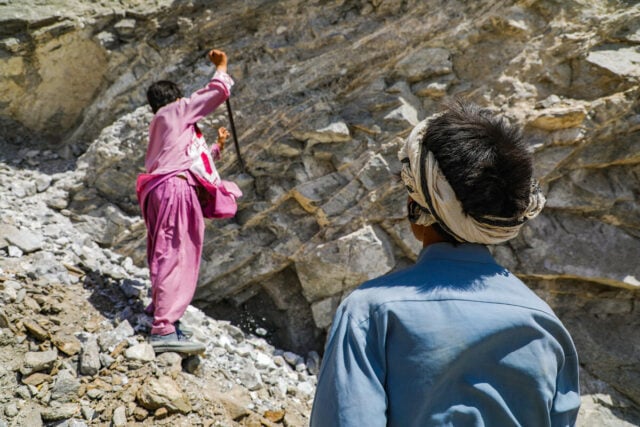Millions of people worldwide who have been forced to flee their homes are living in refugee camps. During the Christmas season, many strive for a sense of normalcy and work to make it as festive as possible.
World Vision, in partnership with the World Food Programme, distributes food to thousands of people in the Bidibidi refugee settlement in northern Uganda. The settlement is becoming so large it’s almost like a mini city. Our staff also works to do a little more at Christmas by distributing clothes, shoes, toys, and other items.
“Every year, we look at this as an opportunity to extend our love to the people we serve,” says Philliam Adriko, a project manager for World Vision’s refugee response in Uganda. “This is the time of year to share part of what God has given us with others, especially those in need.”
Our communications staff in Uganda traveled to Bidibidi, home to more than 239,000 people, to show you how refugees here prepare for Christmas away from home.
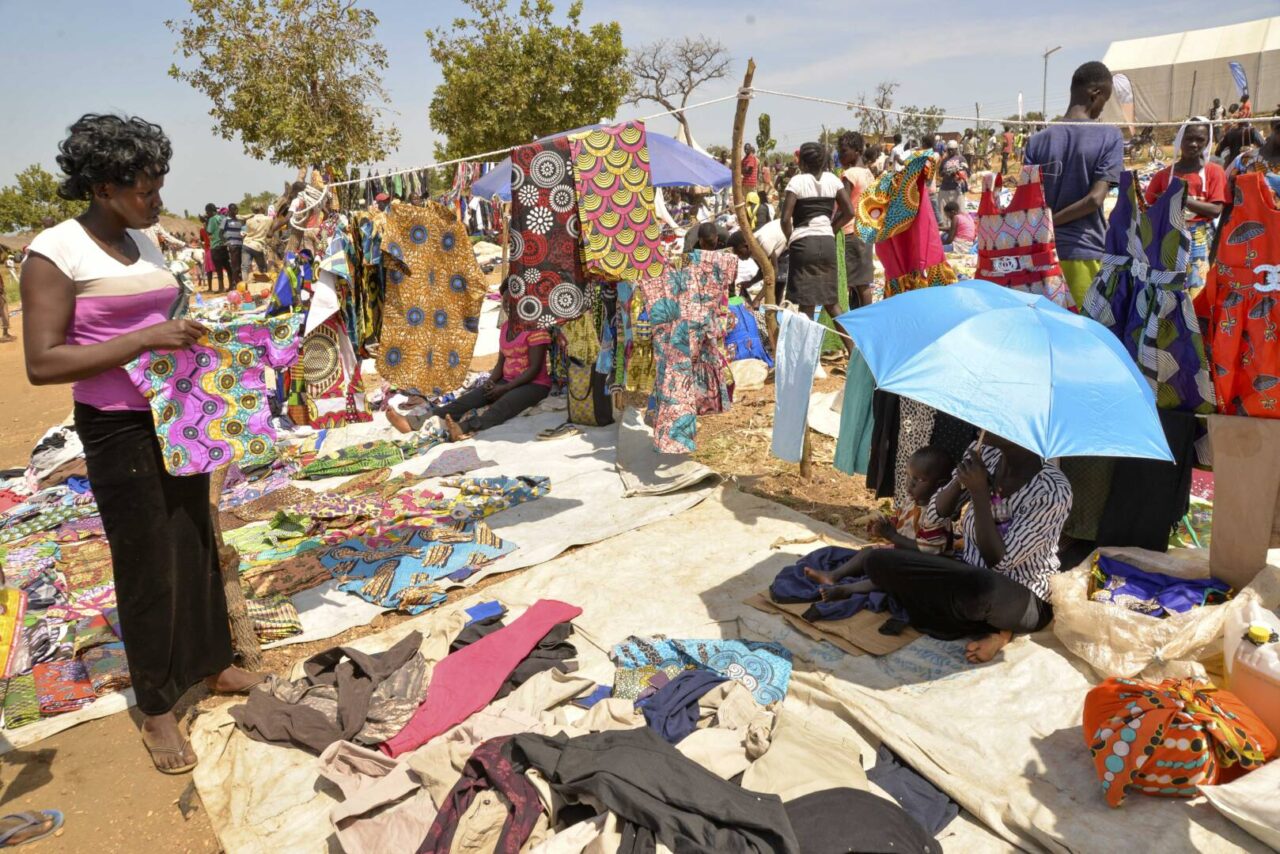
Vendors in the Bidibidi refugee settlement look forward to the Christmas season. Susan Nyoka, a 40-year-old salesperson in Bidibidi, sells over 500 pairs of shoes between November and December.
“I wait the whole year to make such sales, but it is always worth it,” she says. “During this season, I add more stock and ensure to bring the latest fashion and designs on the market.”
Like many traders in Bidibidi, she sets up her shop near food distribution points where people usually come in large numbers to collect their food rations and conduct Christmas business.
Another vendor, Jackline Apai, sells children’s clothes, and says she sells more than 30 dresses every day this time of year.
“During the season, we make some good money,” she says. “We were worried [that] because of COVID-19, people will not have the money this time, but it turns out that they had saved it already, specifically for Christmas shopping.”
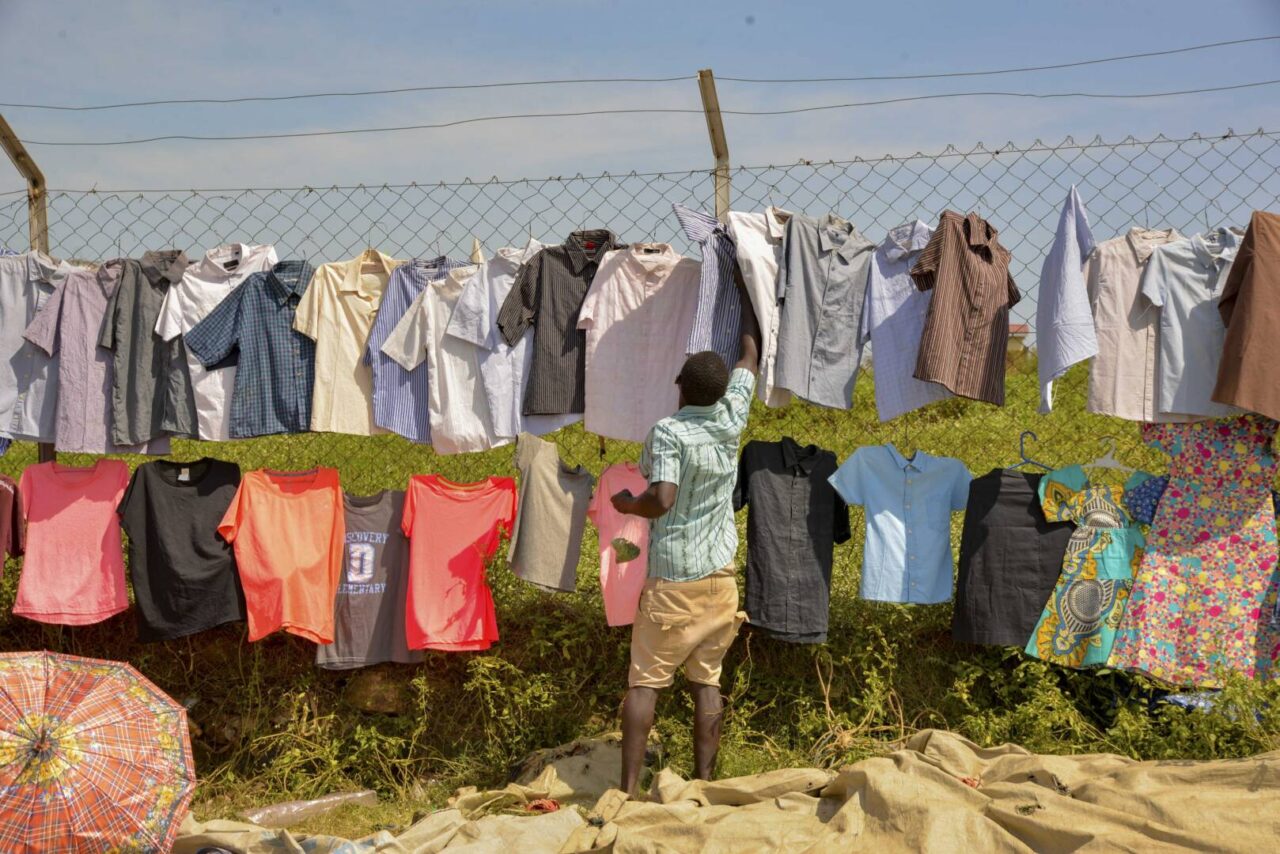
A man shops for a new shirt that hangs along the fence of the refugee settlement. Salespeople hang clothes on fences and also lay out blankets to display the clothes for sale so that people can shop as they wait at the food distribution points.
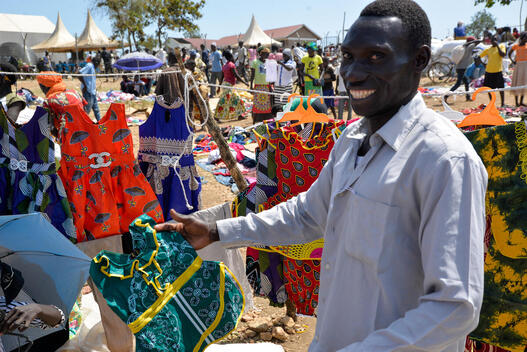
Christopher Bidal, 40, shops at Jackline’s children’s clothing shop. He says that buying Christmas clothes for his children is one way of showing them how much he loves them — and that he starts planning what to buy them at the beginning of each year.
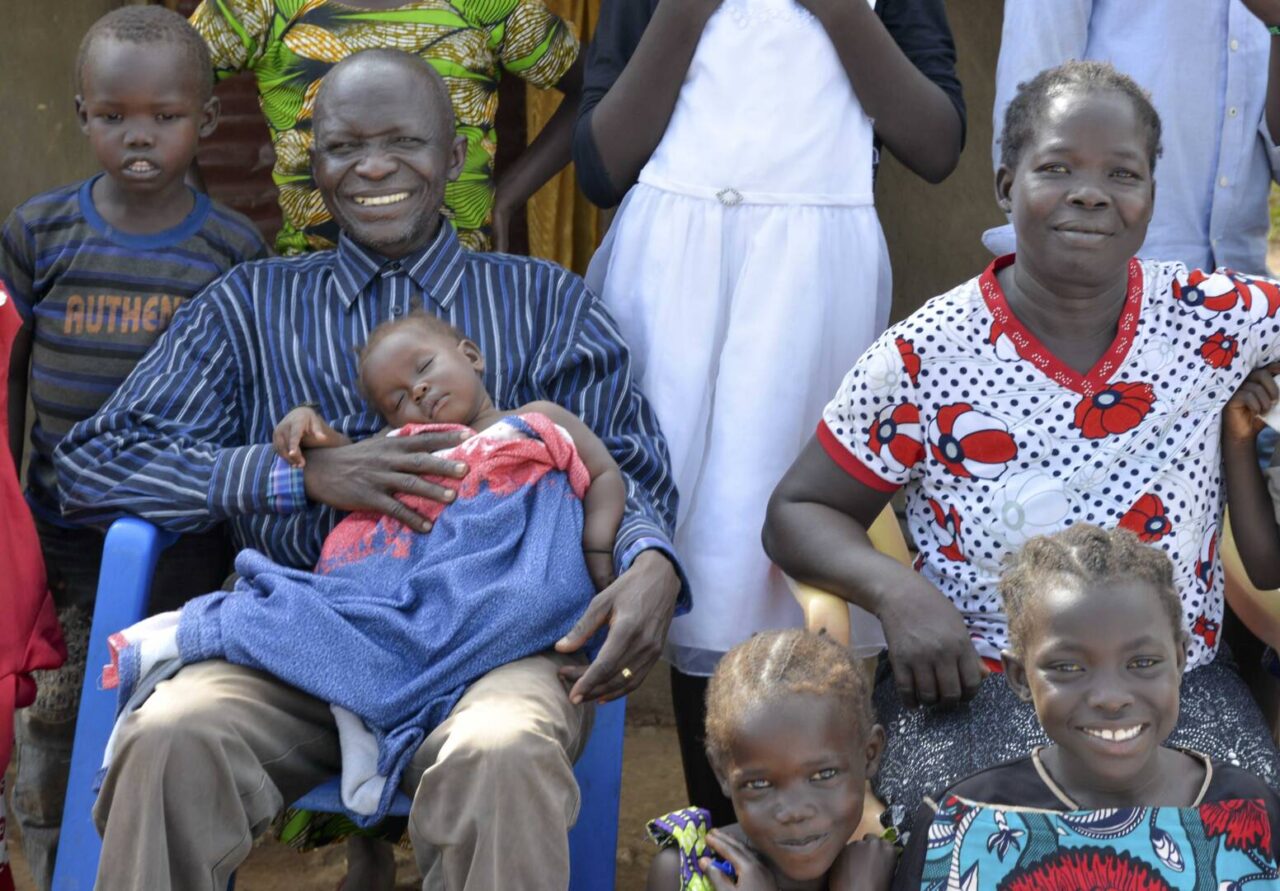
Isaac pastors a church in the refugee camp and recalls his favorite Christmas as a child in 1979.
“It was the best Christmas I ever had,” he says. “Christmas and the days leading to it were always sweet and merry, the beautiful time of the year indeed.”
He loses himself on memory lane, adding, “We would wait for [Christmas] the whole year, basically with three things to be excited about: eating a lot of good food, getting [new clothes], and going to church.”
But sometimes he didn’t get new clothes because his parents couldn’t afford it. It hurt to see his friends all get their new Christmas outfits. Remembering how that felt, he makes it a priority to give his children a new outfit each Christmas. This year, he’s already bought Esther a new dress, but he hasn’t found all the resources to purchase clothes for all his children yet.
Charity carries on the holiday meal tradition by getting up very early to spend the day cooking for her family and the neighbors they will have at their house.
“We literally don’t sleep on Christmas Eve,” she says. They go to church until after midnight, and then at 4 a.m., she and her daughters begin cooking chicken, goat, cassava, rice, and more.
“I use the best spices I can find in the market,” she says. “A Christmas meal has to be special.”
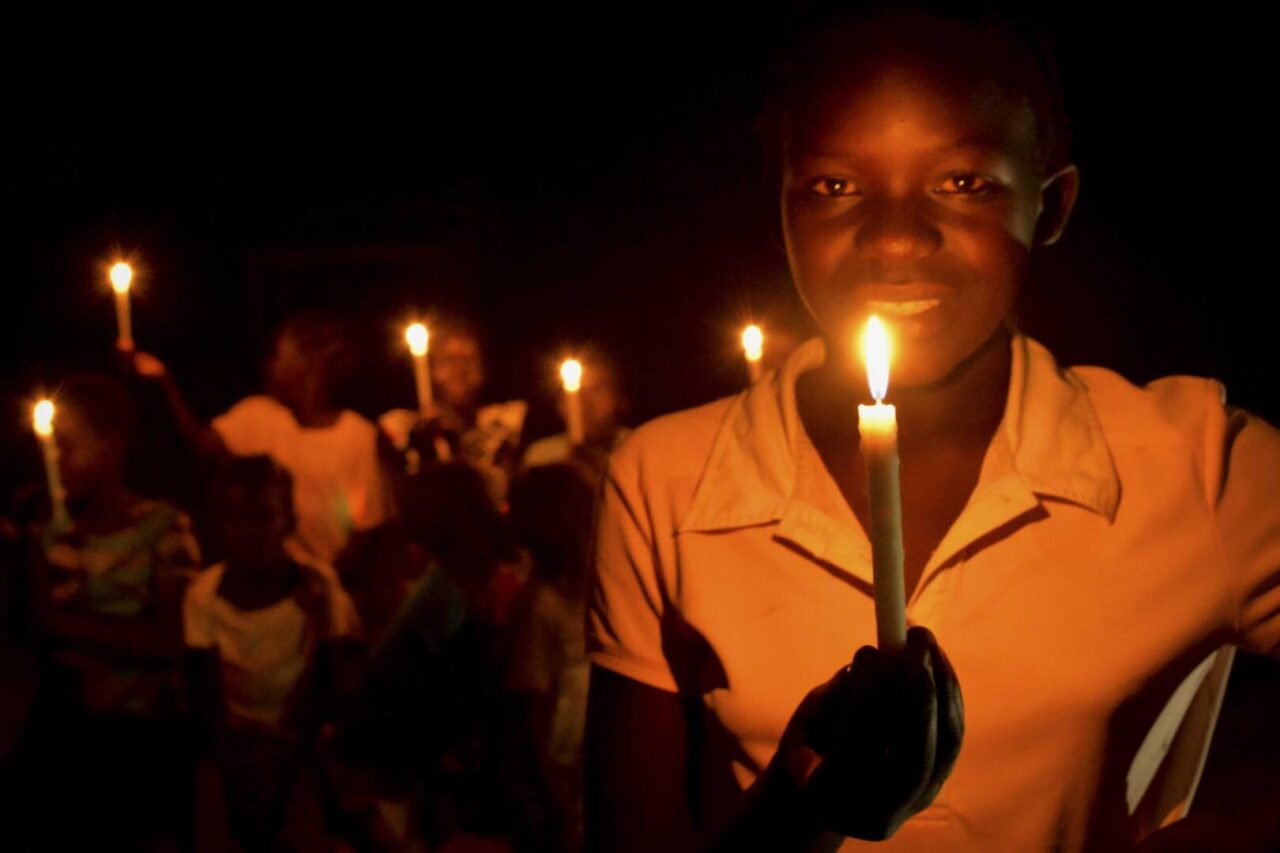
Thirteen-year-old Assumpta leads the children’s choir at her father’s church as they sing “Joy to the World.” She gets really excited for Christmas each year.
“My father always buys for us new clothes every year on Christmas,” she says. “Last year I got a white dress, and I will be waiting for another one this year.”
She and her friends and siblings love singing Christmas songs and start doing so as soon as the calendar turns to December. She’s had three Christmases in Bidibidi and her memories from what Christmas was like back home in South Sudan aren’t very strong.
Gloria, her older sister, more vividly remembers their holidays at home and says that despite everyone’s best efforts, Christmas will never be quite the same in the refugee camp.
“In South Sudan, we would have all the freedom,” Gloria says. “We could visit relatives during the holiday and [travel] as we wanted because we knew so many people. The settlement is a bit confined, and most of our relatives are not here.”
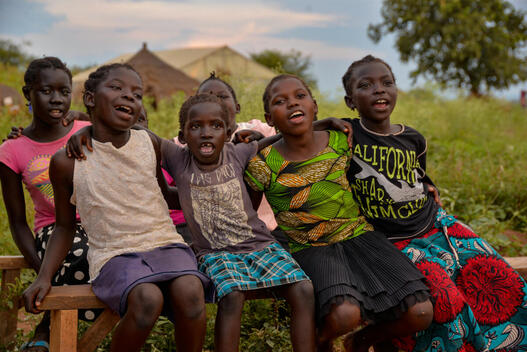
The children’s choir at Isaac’s church loves singing Christmas songs and starts practicing as soon as December comes. They practice in both the morning and evening, and the evening sessions last until dusk, when the children are called home for dinner.
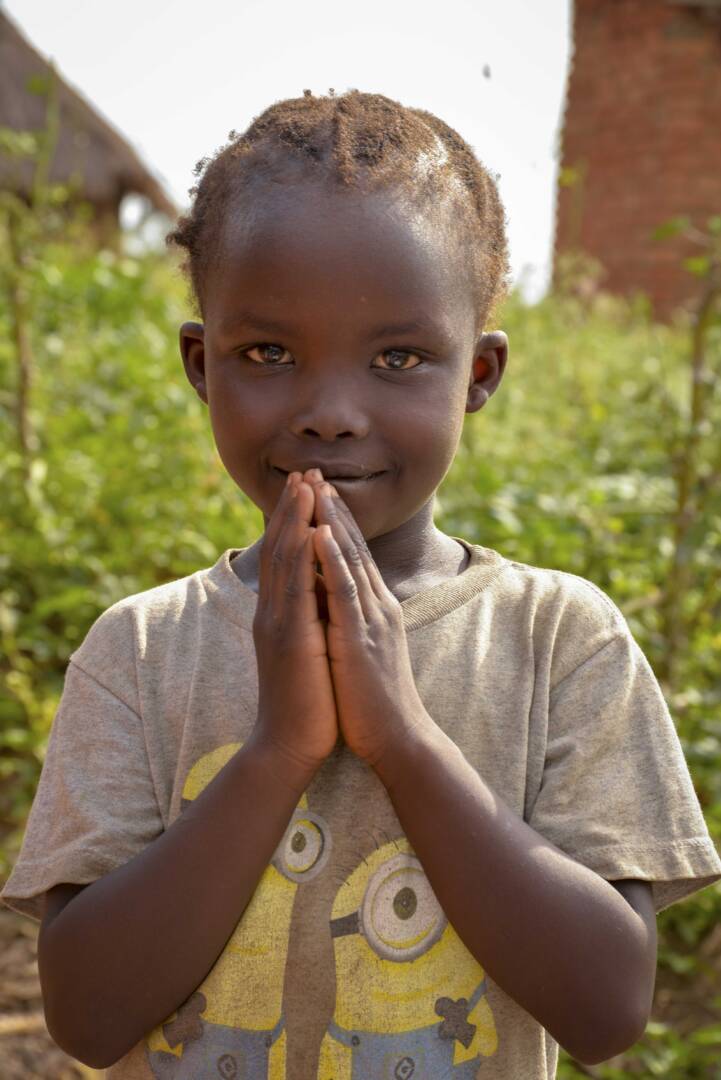
Esther, Assumpta’s youngest sister, says she loves Christmas because she gets to say special prayers and also because she gets a new dress from her parents.
